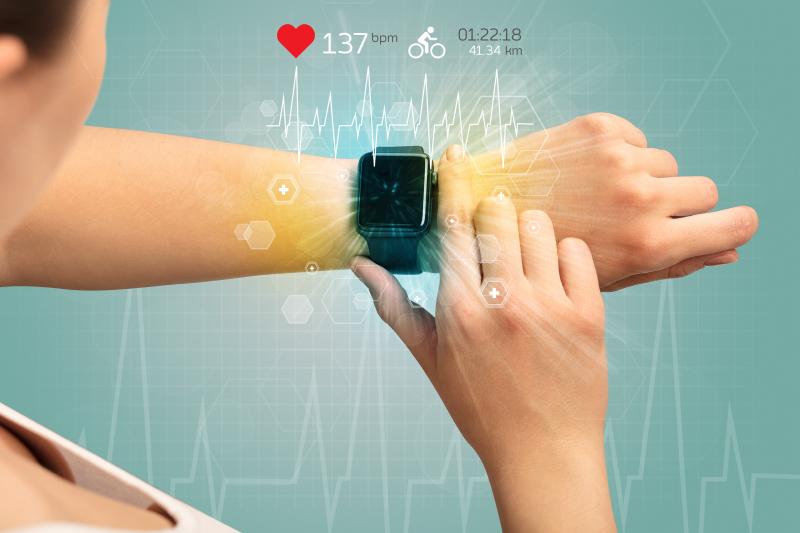
A large-scale assessment of a smartwatch to identify atrial fibrillation (AF) during typical use, known as the Apple Health Study, has shown that the probability of receiving a digital alert of an irregular pulse is low, although more than four-fifths of the sent notifications are concordant with AF.
“Wearable devices with optical sensors, such as smartwatches, are commonly used to measure wearers’ pulse rates… An Apple Watch application (app) can use intermittent, passively detected pulse rate data in an algorithm that identifies episodes suggestive of AF,” the investigators said.
In the Apple Health Study, 419,297 participants without AF who used a smartwatch and a smartphone app consented to monitoring. About half of the participants (52 percent) were <40 years of age, and only 6 percent were aged ≥65 years.
In the event that a potential AF-related irregular pulse was identified, a telemedicine visit was initiated, and the participant was made to wear an electrocardiography (ECG) patch for up to 7 days. The investigators administered surveys 90 days after notification of the irregular pulse and at study conclusion.
A total of 2,161 participants (0.52 percent) received irregular pulse notifications over a median of 117 days of monitoring. Data from ECG patches worn by 450 participants revealed AF to be present in 34 percent overall and in 35 percent of those aged ≥65 years. [N Engl J Med 2019;381:1909-1917]
The resulting positive predictive value for observing AF on the ECG simultaneously with a subsequent irregular pulse notification was 0.84 (97.5 percent confidence interval [CI], 0.76–0.92), whereas that for identifying AF on the ECG simultaneously with a subsequent irregular tachogram was 0.71 (97.5 percent CI, 0.69–0.74).
Of the 1,376 participants who completed the 90-day survey, 57 percent contacted healthcare providers outside the study. There were no serious app-related adverse events documented.
“The main message from the Apple Heart Study lies not in the technology tested, which is rapidly evolving and changing. The lessons lie in how the study was done and why it was done,” wrote Drs Edward Campion and John Jarcho in an accompanying editorial. [N Engl J Med 2019;381:1964-1965]
“Over 400,000 people downloaded the app and enrolled in the study, not because of any health problem but because they were curious and wanted the reassurance of high-tech, zero-effort heart monitoring. In fact, of the 219,179 participants younger than 40 years, over 99.8 percent received no notifications of an irregular pulse,” they added.
Both Campion and Jarcho believe that the results of the study may have important implications, with easy-to-use, wearable devices facilitating research and allowing more immediate, reliable collection of patient data.
However, in light of the possibility of negligent security and deceptive misuse of personal data, “physicians need to help protect the interests of patients against the use of technology that ignores the greater good,” they said.